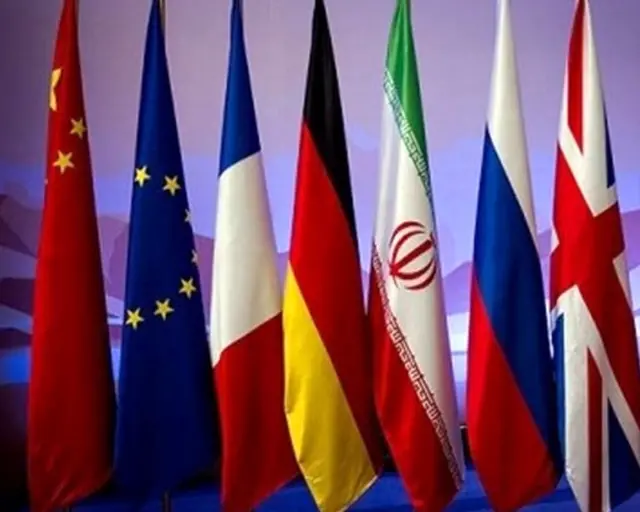Author: Prof. Engr. Zamir Ahmed Awan, Sinologist (ex-Diplomat), Editor, Analyst, Non-Resident Fellow of CCG (Center for China and Globalization), National University of Sciences and Technology (NUST), Islamabad, Pakistan. (E-mail: [email protected]).
The foreign ministers of Iran, Germany, France, the United Kingdom, China, and Russia attended a two-hour virtual meeting chaired by the European Union's foreign policy chief, Josep Borrell, on December 21, 2020 (Monday).
The meeting was held at a critical moment when the U.S. and its allies tried to squeeze Iran. The assassination of an Iranian Nuclear Scientist, strict economic sanctions, military build-up around Iran, and intensified diplomatic pressure on Iran, are a visible phenomenon. Whereas, Iran is still facing all challenges with full confidence and kept its interest at prime.
The foreign ministers recognized the deal, included in Resolution 2231 of the UNSC, as a "key element" in the international non-proliferation regime and a diplomatic achievement contributing to regional and global peace.
The world powers reaffirmed the U.N.'s International Atomic Energy Agency (IAEA) as the only and sole legal independent and impartial organization that can precisely validate the deal's implementation of non-proliferation mechanisms.
The foreign ministers also conveyed their "deep regret" over the United States' unilateral exit from the deal in May 2018, followed by the imposition of punitive economic sanctions on Iran.
"Ministers agreed to continue dialogue to ensure full JCPOA enactment by all sides," the statement said. "Ministers acknowledged the prospect of a return of the U.S. to the JCPOA and highlighted their willingness to address this in a joint effort positively."
U.S. President-elect Joe Biden has assured to bring his country back into the deal and lift illegal sanctions but has hinted that more negotiations are needed on Iran's missile program and regional impact.
The European signatories of the nuclear deal have also made similar comments. Still, Iran has categorically rejected any further consultations, saying the nuclear deal must be instigated as negotiated and signed in 2015.
During that meeting, Iran's Deputy Foreign Minister Abbas Araghchi said President Hassan Rouhani's government is opposed to a recent bill approved by Parliament. Still, it is destined by law to implement it. The legislation pressed by the hardliners in Iran's Parliament was greenlit in a matter of days earlier this month in the wake of the assassination of top Iranian nuclear and military scientist Mohsen Fakhrizadeh. Fakhrizadeh was assassinated in late November through what Iran considers was a sophisticated attack by Israel.
The bill demands on the Iranian government and the country's Atomic Energy Agency to install cascades of advanced centrifuges, increase uranium enrichment, and oust IAEA inspectors if Iran fails to enjoy economic benefits assured under the nuclear deal in two months. In an interview released on Monday, Iran's nuclear program's chief Ali Akbar Salehi slammed
Iran has been under harsh economic sanctions by the U.S. since 2018 when Trump unilaterally removed from Iran's 2015 nuclear deal with world powers.
China's State Councilor and Foreign Minister Wang Yi joined a virtual ministerial meeting of JCPOA participants on December 21. This meeting was convened as the situation surrounding the Iranian nuclear issue has reached a critical juncture. Attending foreign ministers exchanged views thoroughly on the Iranian nuclear issue's current situation and the direction it's heading towards.
Intending to bring the JCPOA back on the path, State Councilor Wang Yi made a four-point proposal at the meeting. First, making persistent efforts to uphold the JCPOA. We must hold our ground more firmly against the Trump government's maximum pressure, make more proactive efforts to enforce the Agreement, and stretch out more to all relevant parties to gain more time and space for a turnaround of the situation. Second, pushing for an early U.S. return to the JCPOA. The United States should return the Agreement with no preconditions as early as possible. It should remove all sanctions on Iran and third-party entities and individuals. On this basis, Iran should fully resume compliance with its nuclear-related commitments. China proposes that JCPOA participants hold consultations on this as early as possible and then, upon reaching consensus, consider having an international meeting with JCPOA parties and the United States to start the process for the United States to return to the deal. Third, resolving the compliance issues fairly and impartially. Iran's scaling back of its commitments happened for a reason. We must stay united, manage differences, and secure Iran's legitimate economic interests. Fourth, properly handling regional security issues. China proposes establishing a multilateral dialogue framework in the Gulf region to discuss regional security issues to uphold the JCPOA to build up consensus incrementally.
All parties agreed that the U.S. should return to the Agreement and resume compliance as soon as possible. Any party should set no preconditions for this. In the joint statement issued after the virtual meeting, JCPOA participants re-emphasized their commitment to preserving the Agreement and its full and effective implementation. Ministers reiterated their deep regret towards the U.S. withdrawal from the Agreement. They stressed that resolution 2231 remains entirely in force; Ministers acknowledged the prospect of returning the United States to the JCPOA and underlined their readiness to address this in a joint effort positively. China will remain to work closely with the JCPOA participants to actively implement the joint statement, endeavor to stabilize the Iranian nuclear issue's situation, bring the JCPOA back on track, and safeguard peace and stability in the Middle East.
(ASIA PACIFIC DAILY)
 简体中文
简体中文

